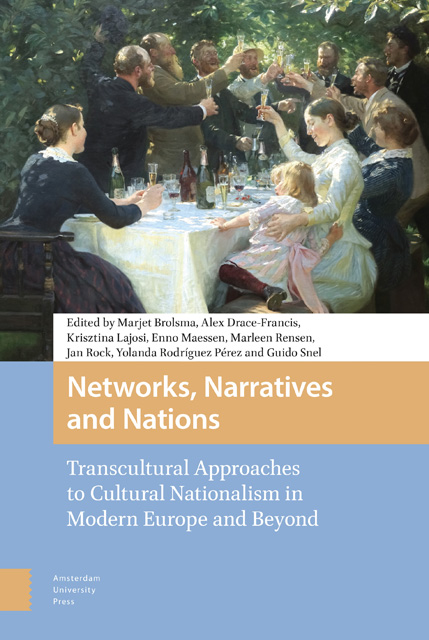 Networks, Narratives and Nations
Networks, Narratives and Nations Book contents
2 - Constructed or Primordial?: The European Nation-State
Published online by Cambridge University Press: 16 November 2022
Summary
Abstract
This chapter posits that the foundational national quality of historiography remains a major challenge for global history. It notes that the predominant modernist theory of nationalism assumes the relativism of national histories without examining it, largely separating “nationalism” as a concept from the contemporary international order of states, many of which are excused being identified as “nationalist” at all. The chapter argues that this is an incoherent position and that modernist theories of nationalism that attack the phenomenon – as a number do – are very far from either addressing the evidence of ancient and medieval history or of adopting a neutral position in pursuit of scientific enquiry, which would acknowledge the perennial relevance of statehood and the sentiments which support it.
Keywords: nations; nationalism; Declaration of Arbroath; Scotland
One of the persistent themes of global historiography is that history has had less impact as a field of scientific enquiry than it deserves, because of its foundational inflection towards the national. Sebastian Conrad describes the fact that “the genesis of the social sciences and humanities was tied to the nation-state” as a “birth defect,” while George Iggers and Edward Wang note how “historical studies have lagged behind” globalization and that “history […] is abused in the pursuit of political, particularly nationalist agendas.” This is but too true. Often history has exhibited a tendency to document the rise of the political order of its own country: in the crudest terms, the state that funds the subject buys the framework of its enquiry. Traditionally, the academies of major states in particular have been dominated by specialists in their own national histories. Calls for “Black History” or a history focused on other minority groups or cultures can be seen as among the forms that the demands of persistent protest take for a corrective to the self-apotheosis of national history, particularly in states which were former colonial powers. In a more muted fashion, cultural history itself serves the same purpose, for histories of material culture, objects or the reception of the natural world lend themselves to the crossing of borders in a way which government, power and war cannot.
- Type
- Chapter
- Information
- Networks, Narratives and NationsTranscultural Approaches to Cultural Nationalism in Modern Europe and Beyond, pp. 41 - 50Publisher: Amsterdam University PressPrint publication year: 2022


